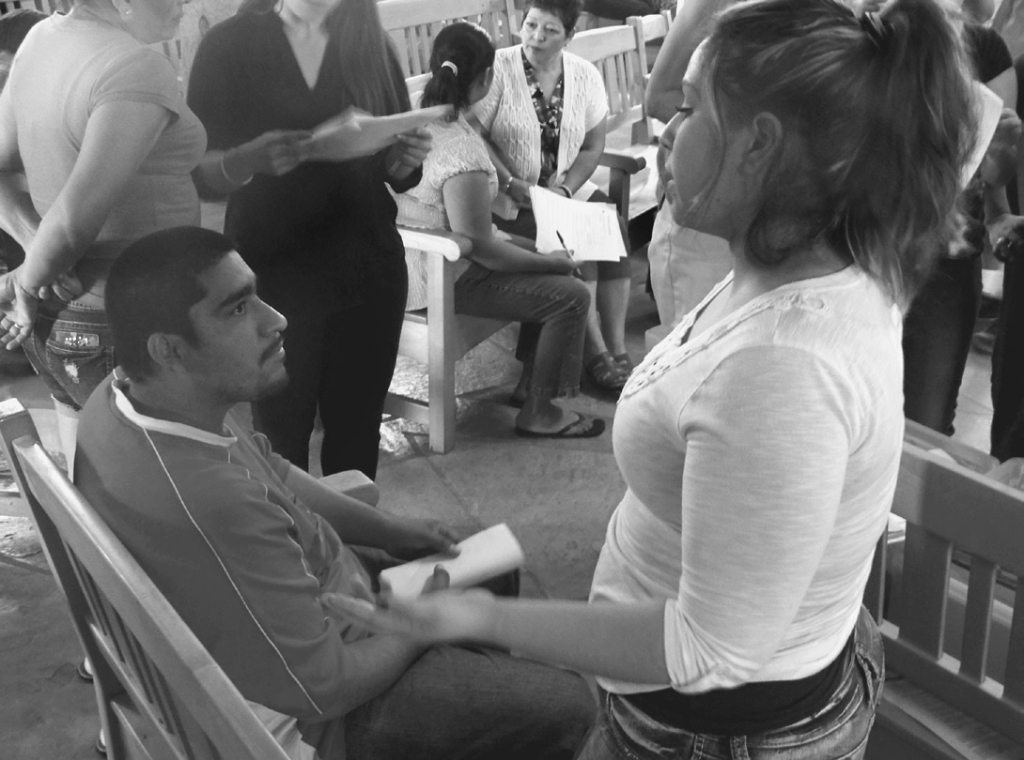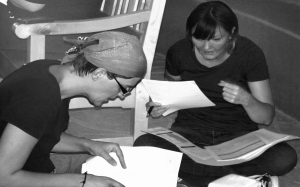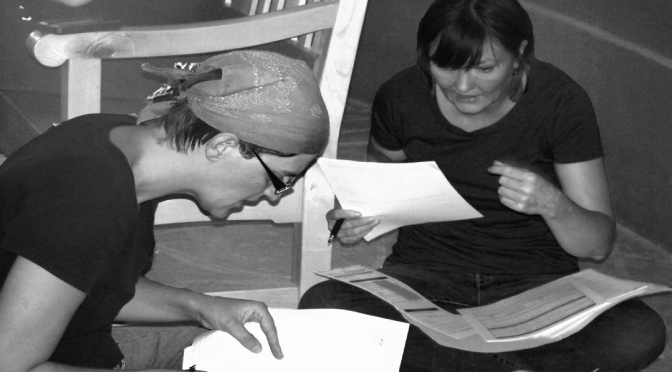This article by Denise Holley appeared in our fall newsletter.
Deportation can split a family apart. It can strand a parent south of the border and leave the rest of the family heartbroken and struggling to earn a living.
After the Arizona Legislature passed SB 1070 in spring 2010, members of No More Deaths joined with the group Tierra y Libertad to launch a campaign called We Reject Racism.

The campaign worked to develop protection networks in undocumented communities to help them build power and advocate for a better community.
“We knew that such a goal could not be achieved if community members were constantly ripped from their homes, work and communities through deportation,” said NMD volunteer Sarah Launius.
The legal clinic is about “empowering people to be able to represent themselves and get their cases closed,” Sinclair said. “I don’t want it to become a service project.”
In response, she, NMD volunteer Kat Sinclair and attorney Margo Cowan cofounded a community legal clinic for people under deportation orders called Keep Tucson Together (KTT).
In July 2011, John Morton, former head of Immigration and Customs Enforcement (ICE), provided an avenue. He issued guidelines for local prosecutors to administratively close cases, Launius said. This is commonly referred to as prosecutorial discretion.
“We started the clinic because we learned that people could take steps to stop their own deportations with administrative closure,” Launius said. “We have learned how to successfully help individuals fight their own immigration cases and win.”
ICE needed some persuasion to act, Sinclair said. On December 12, 2011, KTT mobilized 68 people with deportation cases, their families and friends and NMD supporters to march on the ICE office in Tucson.
“We figured we needed some kind of a miracle,” Sinclair said. “We put some serious pressure on them (ICE officials).” The effort worked—almost all of the original cases have closed, she said.

Since the legal clinic began in September 2011, volunteers have helped stop over a hundred deportations, Launius said.
When President Obama announced the Deferred Action for Childhood Arrivals (DACA) program in summer 2012, KTT held meetings at Pueblo High School on Thursday evenings that drew some three thousand people, Sinclair said.
Volunteers helped nearly five hundred youths apply successfully for DACA, Launius said. Others did their own paperwork.
Keep Tucson Together trains volunteers to work with immigrants and provides free assistance from 2 to 5 p.m. on the first and third Saturday of each month at Southside Presbyterian Church, 317 West 23rd Street, in Tucson.
The legal clinic is about “empowering people to be able to represent themselves and get their cases closed,” Sinclair said. “I don’t want it to become a service project.”
At the August 16 clinic, there were twenty to thirty Dreamers, a couple of bond cases, a couple of asylum cases and five or six deportation cases, Sinclair said.
The Tucson immigration court, which includes Douglas, is number two in the country in the number of deportation cases closed (Seattle is first), Sinclair said, citing data from the Transactional Records Access Clearinghouse at Syracuse University.

